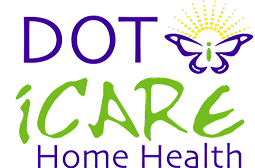Vision Problems, Symptoms and Solutions in Aging Adults

It is no surprise that as you age, your body changes. Around the age of 40, you may notice that reading small print becomes trickier, colors aren’t as easy to distinguish and glare might bother you a bit more. These are all normal changes to your eye sight as you age. But what other signs and symptoms do you need to be aware of that may indicate more serious sight and vision problems?
Signs and Symptoms of Sight Problems Related to Aging
Note that prompt diagnosis and treatment is important. You should consult an optometrist or a doctor immediately after symptoms appear in order to avoid permanent damage to your eyes, which could lead to vision loss.
- Sudden eye pain, redness and nausea
- Sudden single eye vision blur
- Spots in your field of vision
- Surface pain, tearing, or irritation
- Stabbing pain like a needle in the back of your eye (caused from acute dryness)
- Double vision
- Darkening sensation across the visual field
- Narrowing of vision field
- Distorted vision
- Cloudy vision
Chances are that your symptoms may be related to one of the common vision problems experienced by the aging population such as glaucoma, cataracts or dry eyes. The good news is that many of them can be treated as long as you seek the appropriate medical care. Eye sight problems can also be indicative of other health problems relating to high blood pressure, diabetes or heart health which means that taking good care of your eyes and getting them regular checked is extremely important.
There are things you can do to keep your eyes and eye sight in good health as you age.
- Eat foods that support your eye health: Omega -3 fatty acids which can be found in fish and almonds support the health of the part of the eye responsible for central vision. Foods rich in antioxidants, like leafy green vegetables are also a good choice.
- Wear sunglasses: You can also minimize the UV rays that come through the side of your sunglasses with either a wide brimmed hat or sunglasses with side shields.
- Be cognizant of screen time: When you use the computer, adjust your lighting to minimize glare. Blink frequently and remember to take breaks and focus on a distant object instead of your screen.
- Do eye exercises: Like exercise for any other part of your body, eye exercises will make your eye muscles stronger and more flexible, improve energy and blood flow and also combat eye strain.
- Roll your eyes for a few seconds in each direction. Repeat four to five times.
- Blink 20 to 30 times very rapidly and then close your eyes and let them rest. Repeat twice a day.
- Hold a pencil at arm’s length and focus on it. Move it towards your nose and then move it farther away until you can no longer focus on it.
Seniors who live in long term care facilities or are supported by home healthcare, have an easier time keeping up with all medical appointments that contribute to their overall good health. iCare Home Health Services provides premier senior care in Milton, Burlington, Mississauga, Oakville and the surrounding areas. Our services can help provide the support your loved one needs. Call us today at 905-491-6941 and find out more about our elder care services.

